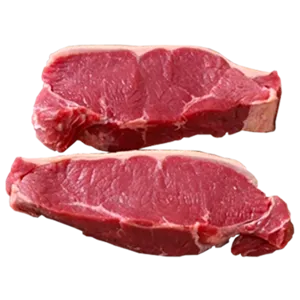Vitamin B3 is a B-vitamin necessary for Energy Metabolism (helps us access the energy in our food). It stabilizes blood sugar levels, keeps cholesterol levels low, supports genetic processes at cell level and assists the body in the processing of body fat.

Niacin & Niacinamide
• Niacinamide can be made from Niacin in the body.
• Niacin is converted to Niacinamide when it is taken in amounts greater than what is needed by the body.
• Niacin and Niacinamide are easily dissolved in Water and are well-absorbed when taken by mouth.
• Niacin and Niacinamide are required for the proper function of fats and sugars in the body and to maintain healthy cells.
• At high doses, Niacin and Niacinamide can have different effects.
• Niacin might help people with heart disease because of its beneficial effects on clotting.
• It may also improve levels of a certain type of fat called triglycerides in the blood.
• Niacinamide has no beneficial effects on fats and should not be used for treating high Cholesterol or high fat levels in the blood.
• Niacin is important in Energy Metabolism (Metabolism of fats), biochemical functions needed to maintain healthy Skin, properly functioning gastrointestinal tract and Nervous System.
• Niacin is important for keeping the Digestive System, Skin & nerves healthy and critical to releasing Energy from Carbohydrates and helping to control blood-sugar levels.
• Inadequate Iron, Riboflavin, or Vitamin B6 status decreases the conversion of Tryptophan to Niacin.
• Niacin is a water-soluble vitamin found in relatively generous amounts in fish, Poultry, Beef and venison.
Eating Protein foods prevents Niacin deficiency because they supply Tryptophan (an Amino Acids that is converted into Niacin).
• Neuro-degeneration
• Generalized weakness or specific muscle weakness
• Loss of appetite
• Skin Infections
• Digestive problems
• Pellagra (which is characterized by dermatitis, Diarrhea, Dementia, and, if untreated, death)
Note:
* The RDA for men is 16 Niacin equivalents and women is 14.
* Vitamin B3 deficiency often leads to pellagra (a life-threatening medical condition).
* Alcoholism is a major cause of severe Niacin deficiency and is reported to be a leading cause of a variety of other Vitamin and mineral deficiencies.
Health Benefits of Vitamin B3






Cardiovascular System
• Niacin increases HDL (good) Cholesterol levels and lowers LDL (bad) Cholesterol levels.
Foods & Cardiovascular System



Diabetes
• Niacin is a natural remedy against Diabetes as it regulates high blood sugar levels, thus may help with the prevention and even management of Diabetes.
Foods & Diabetes

Digestive System
• Vitamin B3 (especially in combination with other B-complex Vitamins), supports the digestion process. An adequate intake can efficiently stimulate appetite.
Foods & Digestive System




Immune System
• It prevents pellagra (a a potentially life-threatening disease of the poor and malnourished). A severe Vitamin B3 (Niacin) deficit can lead to pellagra.
Note:
* Medical conditions and certain Anti-Biotic, immuno-suppressant or Anti-Cancer medications are believed to interfere with Vitamin B3 (Niacin) absorption and cause pellagra, a potentially life-threatening condition.
* Pellagra symptoms include: severe dermatitis (itchy, inflamed, red, scaly Skin), swelling, photosensitivity (increased sensitivity to light), Diarrhea, muscle weakness, nerve damage and Dementia (a severe neurological disorder that impairs a person’s cognitive abilities).
Foods & Immune System






Metabolism
• Niacin plays a crucial part in the conversion of Proteins, fats and Carbohydrates into Energy. Our body needs Energy in order to support the most basic functions of important organs such as The Heart, lungs and brain.
Foods & Metabolism

Musculoskeletal System
• Vitamin B3 is crucial for good health and normal development, hence a good Niacin intake is said to help ease Arthritis symptoms.
Foods & Musculoskeletal System







The Brain & Nervous System
• Niacin promote relaxation, known to improve memory, and support cognition and overall brain activity. A generous dietary intake of Vitamin B3 is known to promote relaxation and, in time, improve the quality of your sleep and even treat Insomnia.
Foods & Nervous System


Foods Rich in Vitamin B3 (Niacin)
* The Order is from the Highest Level of Vitamin B3 [Niacin] Concentration.

1)
Rice Bran

2)
Chlorella

3)
Sockeye Salmon

4)
Yellowfin Tuna

5)
Liver (Lamb)

6)
Skipjack Tuna

7)
Anchovy

8)
Spelt

9)
Wheat Bran

10)
Sesame Flour

11)
Liver (Beef)

12)
Spirulina

13)
Peanuts

14)
Nori Seaweed

15)
Liver (Turkey)

16)
Whitefish

17)
Coriander

18)
Wakame Seaweed

19)
Paprika

20)
Parsley (Dried)

21)
Liver (Chicken)

22)
Hemp Seeds

23)
Tomato Powder

24)
Mackerel Fish

25)
Acai Berries

26)
Tarragon

27)
Chia Seeds

28)
Chum Salmon

29)
Guinea (Meat)

30)
Cayenne

31)
Giblets (Turkey)

32)
Halibut

33)
Shiitake Mushroom

34)
Chicken

35)
Beef

36)
Turkey




